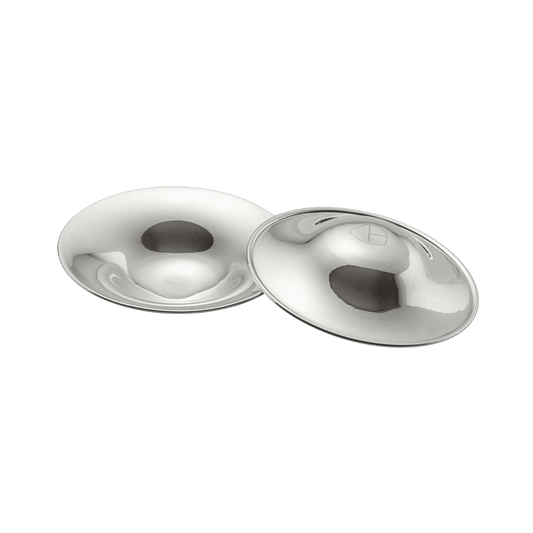Is he feeding enough? Is he putting on enough weight? These are two of the most asked questions by new mums, especially those who breastfeed, as it’s hard for them to understand how much milk their baby is actually taking in at each feed.
Read on to find out how to tell if your baby is growing on track.
Newborn baby weight: the basics
Our point of reference for our children’s growth - as well as their health - is their Doctor (or Health Visitor in UK). He or she will be able to tell you if your baby is growing on track and if you need to supplement breastfeeding.
Not all babies grow the same way and there are numerous aspects which a Doctor or Health Visitor will take into account, drawing on their experience and knowledge of the child.
At the same time, there are guidelines on a baby’s growth that we can refer to, which have been devised based on international statistics, in particular those of the World Health Organisation.
According to statistics, the average weight gain of a healthy baby is 33% in the first six weeks of life, 25% in weeks seven to twelve and 20% in weeks twelve to eighteen. We’ll take a look at this in more detail in the following paragraphs.
How much weight should a newborn gain per day
There’s no point at all in weighing your baby every day, it will just cause unnecessary worry. Newborns don’t put weight on every day, in fact their growth varies from week to week.
Bear in mind that during the first week of life, a baby actually loses weight, due to the stress from the birth and liquid loss (deriving from stools, urine, sweat, as well as simply the act of breathing).
How much weight should a newborn gain per week
Weekly weight gain is also not an ideal way to monitor your baby's growth, as weight gain can fluctuate from week to week, even with quite significant variations. For example, in one week a baby may gain 80 g, and the next 200 g.
It's also important to understand which particular week we are referring to, because, as we’ve seen, during the first two weeks of life, a baby loses body weight as their weight undergoes a physiological decrease.
How much weight should a newborn gain in a month
A baby grows very quickly during the first month of their life. How much a baby weighs depends on a variety of factors, including birthweight.
You should not be alarmed if your baby is growing less, or weighs less, than another child their age. Each infant has their own rhythm. What’s most important is that they continue to grow consistently from week to week. How much depends on baby to baby.
According to the WHO growth charts, during the first three months of life, a baby’s weight can increase from 400 g to 800 g per month. From 3 months onwards, their growth rate starts to slow down.
During the first few months, a baby may suddenly increase their demand for breastfeeding, so the frequency of feeds sharply increases. Don't be alarmed - this does not mean that they aren’t gaining enough nutrition from your milk. This is down to physiological behaviour which helps increase the production of breast milk to compensate for what is called a growth spurt. After a day or two, breastfeeding will resume its normal pattern.
How much should a one-year-old baby weigh
As we mentioned earlier, weight depends on each individual child as well as their birthweight. There will be babies who weigh 8 kg and others who weigh 12 kg. Both are acceptable.
As a guideline, we can say that their weight should be approximately three times their birthweight.
When to worry?
Weight is the main indicator of a baby’s growth and overall nutritional health. This, however, does not mean that a chubby baby is a healthy baby. As we said, the important thing is that their growth is constant and progressive.
Here are some signs that something may be wrong:
- An infant has gained less than 100 g per week or 400 g per month
- Their weight at 15 days old is less than their birthweight
- A baby wees less than 6 times a day, their urine has a strong smell and is dark yellow in colour, and their stools are hard and dry
Always consult your child’s Doctor if you have any questions or doubts.
Weight is not the only indicator we use to monitor a baby’s growth: in addition to weighing your baby, your child’s doctor will also measure their length and head circumference to assess their development in accordance with reference charts that include all these factors. Even if your baby falls in the lowest percentile, the important thing is that he or she is growing normally. Not all babies are big eaters!
The information contained on this Site is purely of an informative nature and does not replace any diagnosis or treatment advice received from a doctor. We recommend that you always seek advice from your family doctor and / or specialists.







